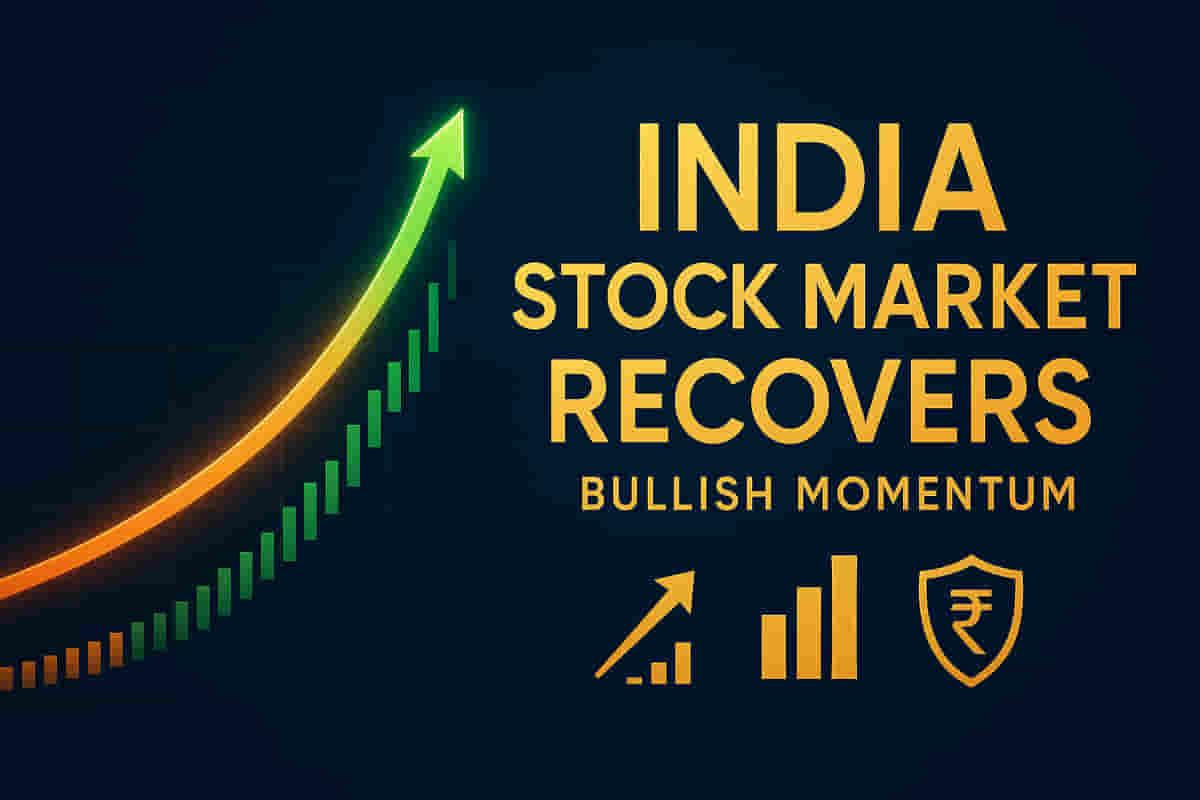Indian Stock Market Recovers: Sensex and Nifty Bounce Back on Blue-Chip Buying
Economy
|
31st October 2025, 4:30 AM

▶
Stocks Mentioned :
Short Description :
Detailed Coverage :
The Indian stock market, represented by the benchmark indices Sensex and Nifty, experienced a rebound in early trading on Friday. The 30-share BSE Sensex rose by 132.77 points to reach 84,537.23, and the 50-share NSE Nifty increased by 37 points to 25,914.85. This positive movement was primarily fueled by buying interest in large-cap stocks, often referred to as blue-chips, including Tata Consultancy Services and ITC Limited.
Other notable gainers on the Sensex included Maruti Suzuki India Limited, Bharat Electronics Limited, Bajaj Finance Limited, and Titan Company Limited. However, some companies faced selling pressure, with NTPC Limited, Kotak Mahindra Bank Limited, and Tata Steel Limited appearing among the major laggards.
The domestic market sentiment was influenced by global cues. Asian markets showed mixed performance, with South Korea's Kospi and Japan's Nikkei 225 trading higher, while Shanghai's SSE Composite and Hong Kong's Hang Seng indices were down. US markets had closed lower on Thursday, contributing to a cautious global outlook.
Investor activity data revealed that Foreign Institutional Investors (FIIs) sold equities worth Rs 3,077.59 crore on Thursday. In contrast, Domestic Institutional Investors (DIIs) acted as net buyers, investing Rs 2,469.34 crore.
Analysts noted investor caution, attributed to the Federal Reserve's recent policy signals and anticipation of upcoming economic data, which are crucial for understanding the global economic trajectory. The decline in global oil prices, with Brent crude down 0.65% to USD 64.58 a barrel, also played a role in market sentiment.
This news impacts the Indian stock market by influencing short-term trading sentiment and providing insights into institutional investor behavior. The bounce back suggests underlying strength or short-covering, but the caution from global markets and FII selling indicates potential volatility ahead.
Impact This news can impact the Indian stock market by influencing intraday trading and short-term investor sentiment. The continued participation of DIIs provides a supportive backdrop, but global uncertainties and FII outflows remain key factors to watch. Rating: 6/10
Difficult Terms: Sensex: A stock market index representing the performance of 30 large, well-established, and financially sound publicly traded companies listed on the Bombay Stock Exchange. Nifty: A benchmark Indian stock market index that represents the weighted average of 50 of the largest Indian companies listed on the National Stock Exchange of India. Blue-chips: Stocks of large, well-established, financially sound companies that have operated for many years and are known for their stable earnings and ability to weather economic downturns. Foreign Institutional Investors (FIIs): Investment funds registered in a country other than India that invest in Indian securities. Their buying and selling can significantly influence market movements. Domestic Institutional Investors (DIIs): Investment funds registered within India, such as mutual funds, insurance companies, and pension funds, that invest in Indian securities. Kospi: The Korea Composite Stock Price Index, which tracks the performance of all common stocks traded on the Korea Exchange. Nikkei 225: A stock market index for the Tokyo Stock Exchange, representing 225 large, publicly traded companies in Japan. SSE Composite Index: The Shanghai Stock Exchange Composite Index, which is a market index composed of all the stocks traded on the Shanghai Stock Exchange. Hang Seng Index: A stock market-performance gauge of the Hong Kong Stock Exchange. Brent crude: A specific type of crude oil that serves as a global benchmark for oil pricing. Its price movements affect energy companies and inflation expectations. Federal Reserve: The central banking system of the United States, responsible for monetary policy and financial stability.